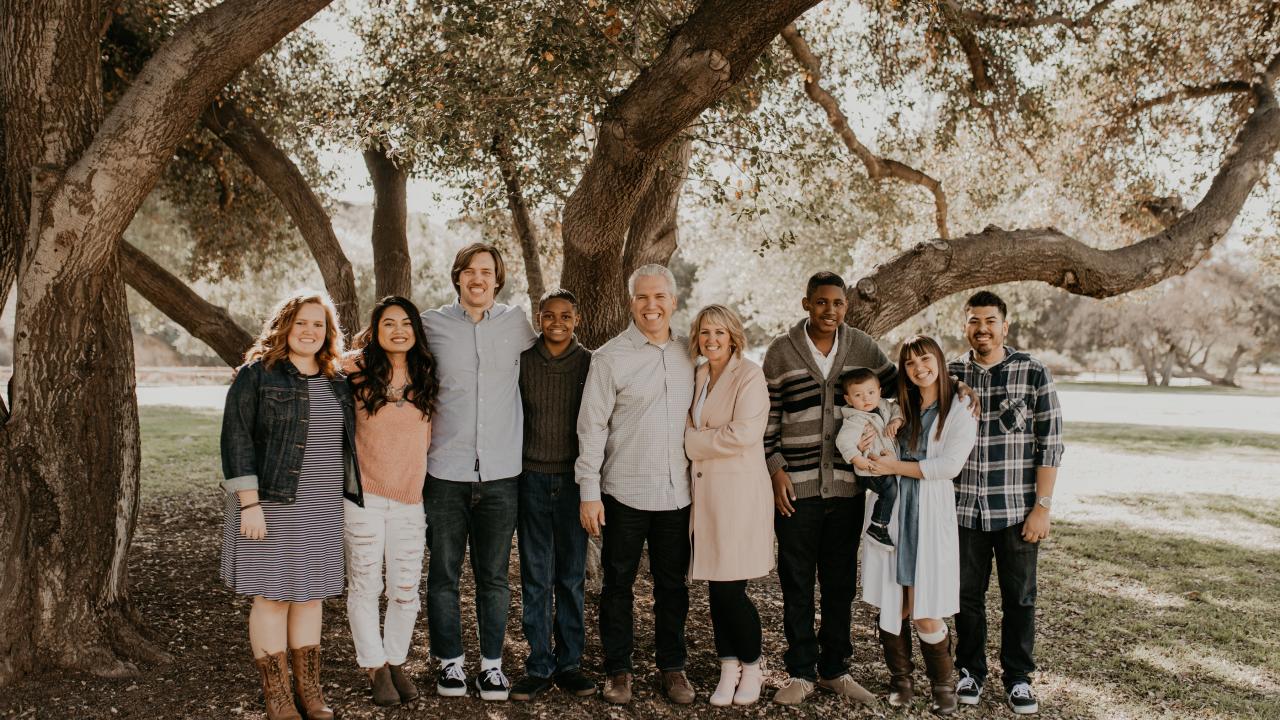
“They opened my eyes. They were the glasses that helped me see!”
That’s how Eli, age 15, describes Wraparound.
Serena and her husband Jeff adopted Eli at age two. They participated in many services before Wraparound, but none of them seemed to help Eli.
“With his history of attachment issues, Eli had always been in survival mode, always reacting. It’s been a struggle, sometimes giving in, but never giving up,” Serena explains. “We signed up, participated and graduated from every program, but nothing changed.” Serena and Jeff had been foster parents for over 10 years, and Serena, herself, had worked for an Adoptions agency.
“We had all the trainings and access to the latest information," she says, “but being an adoptive mom and working in adoptions does not necessarily make you an expert.” Because of her experience in the matter, Serena felt like a failure when she wasn’t able to help Eli. “By the time we reached out, we had been struggling for a long time.” Though she was hesitant to ask for help, it was their first big step.
Serena was familiar with Wraparound from her work, so the family decided to try it. She admits that she was overwhelmed by the experience at first. Everyone had a role and there were lots of meetings together; various Wraparound team members came and went each week for about a year. Initially the team met with the family once a week, then once a month toward the end. They were flexible and scheduled things around her work or other appointments.
“Wraparound wasn’t like anything else. Everyone was on the same page. Everything was open for discussion, and we made a family plan to act.”
What was the difference? “It was the team,” says Serena. “Multiple people seeing what was happening from multiple sides, overtime and in a normal environment like home. Different perspectives made the difference,” she continues. “This was the one thing that finally got down to Eli’s core, peeling back the layers underneath. I felt heard, they listened to me and used our ideas. It wasn’t like other services where they tell you “this is the way you’re supposed to do it,” Serena explains. “They were very responsive to our needs. Although there were individual meetings, a therapist with Eli and a parent partner with me, everyone was on the same page.”
“I thought there was no hope for Eli to get out of the survival mode,” says Serena, “but after a few months, we turned the corner and it was amazing.” Eli divulges, “I started to be happy—I used to be sad most of the time.”. Eli earned rewards for his behavior, like playing his favorite board games, and describes how he looked forward to his therapist coming. “I really enjoyed playing Uno and that helped me open up. I was finally able to do something I really wanted to do.”
Eli describes one tool he still uses: STOP, THINK, CHOOSE. These words resonate with Eli in his daily encounters with family, friends, at home, school or in the community. Serena praises Eli’s progress and comments, “He takes responsibility for what happens. He can verbalize and share his feelings now.” Eli also notices how he is able to socialize more easily with both old and new friends. Before Wraparound, any disagreements he had with friends would end in tears and meltdowns. Now they are able to talk about it, quickly resolve disagreements and keep playing. “I don’t always have to win,” Eli expresses. Serena adds, “Eli now has an understanding of people’s feelings, where before, Eli took a disagreement as a full-blown rejection and reacted accordingly.”
She proudly adds, “Eli has evolved into the amazing person I always knew he was, but now others can see that for themselves. Wraparound made it possible.”
Eli agrees and says he realizes how much he’s changed. As Eli puts it, “They were the glasses that helped me see.”
Wraparound has moved on to help other families, but Serena says they continue to use the many tools Wraparound brought to the family. Serena stresses the importance of developing and utilizing a natural support system. Wraparound occasionally pulled in the local adult children and the family pastor. “They became part of the team and they still are there to provide support, encouragement and motivation.”
As Serena describes her journey as a parent, she shares some important steps that made change possible for them:
1. “Admit that what you’ve been doing wasn’t working. Being aware and acknowledging is a big step.”
2. “Ask for help!” By overcoming her disappointment with herself and reaching out for help, she was able to take a big step in helping Eli.
3. “Have an open mind.” At first, Serena didn’t believe Wraparound would work, but she was open to suggestions and worked together with the Wraparound team to envision the ideal outcome.
Thank you, Serena and Eli, for sharing your journey of Wraparound. We know your story will inspire other families to reach out and create their own positive change! Eli, your future will be even more amazing!
